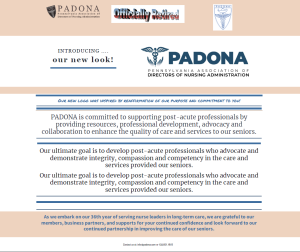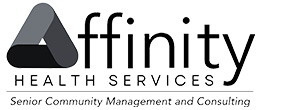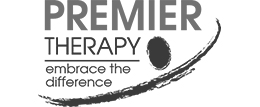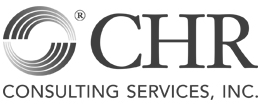News
Latest articles and more
Annual Report – CY2024
2024 PADONA Annual Report – FINAL
The attached annual report provides a summary of the organization’s activities for CY 2024. We are deeply grateful for the dedication and support of our staff, board of directors, members, business partners, and all of our supporters for their contributions in helping us achieve our mission.
2025 Scholarship Program – Applications Now Being Accepted
PADONA 2025 Scholarship Application – FINAL
Each year, PADONA awards three types of nursing education scholarships for our members in pursuit of learning. It is only through the generous support of our conference attendees, business partners, and sponsors that we can offer these opportunities.
Primary PADONA members can apply or recommend an applicant for an educational scholarship for any one of the following opportunities:
- Monetary Award towards a nursing degree;
- Continuing Education Award toward the 2026 annual convention attendance; and/or
- Continuing Education Award toward the 2025 annual Leadership Development Course.
Primary members can recommend a family member, friend, or a co-worker who is pursuing a nursing career and /or higher education in a nursing field for a monetary scholarship. Please reference the attached eligibility criteria, requirements for submission, and application. Applications will be received through February 28, 2025. Please submit your application packet to Candace McMullen at cmcmullen@padona.com. All required documents for the type of scholarship pursued must be received by the deadline to be considered by the scholarship committee.
Credit Card Payments – Change to Current Process
In an effort to ensure your credit card payment information remains secure, we will no longer be utilizing the ‘Credit Card Authorization Form’ to process credit card payments.
Effective today, November 14, 2024, to make credit card payments, please utilize one of the following methods:
1. You can register and submit credit card payment for educational events, such as our webinars and annual conference, directly through our website using Paypal.
OR
2. You can submit your registration form directly to LuAnn White. Once registration is received, LuAnn will generate an invoice that will include a payment link for you to pay directly via credit card.
We will continue to accept checks for payment as well. This change impacts ONLY credit card payments. We appreciate your cooperation with this policy change.
Free Infection Prevention and Control Education
Free infection prevention and control education available – now through December!
Sponsored by the department of Health and APIC. See attachment for details. Click here for registration.
MDS Version 1.19.11 Effective October 1, 2024
The Centers for Medicare and Medicaid Services (CMS) will revise the MDS assessment tool
for data collection effective October 1, 2024.
The revised Resident Assessment Instrument
Manual has been posted to the CMS website and includes the revised data collection tool.
These are currently a DRAFT. The DRAFT Minimum Data Set Resident Assessment
Instrument Manual version 1.19.11 can be reviewed at Minimum Data Set 3.0 Resident
Assessment Instrument User’s Manual v1.19.1 (cms.gov)
The changes in the draft RAI Manual include:
- Guidance to support the addition of the following new items:
– N0415K: Anticonvulsant
– O0350: Resident's COVID-19 vaccination is up to date. - The removal of Discharge Goals in items GG0130: Self-Care and GG0170: Mobility.
- Additional clarifications were added to Chapter 5, Submission and Correction of the
MDS Assessments, regarding situations where an erroneous PPS assessment is
combined with an OBRA-required assessment (e.g., for a Medicare Advantage stay). In
this situation, a Manual Deletion Request is required, followed by the completion and
submission of a new stand-alone OBRA MDS assessment.
Specifics regarding all of the changes can be found in the included chapter/section change
tables at the end of the draft Manual.
2024 Spring Conference Agenda Released
2024 Convention Agenda – Revised 01.11.2024 – 2Join us for 4 days of great programming, networking with your peers and colleagues, and fun events at our 36th annual conference! Back by popular demand …. CMS representatives, DOH representatives, and a host of industry experts who will provide update to date information on the regulatory environment, legal considerations, and clinical best practice standards.
April 2 – 12:45 – 6:00PM Break-Out Sessions – Attend the session(s) of your choice!
April 3 – 8:15AM – 1:30PM Educational Sessions / 3:00-5:00PM Expanded Exhibitor Hours with wine, beers, games, and door prizes
April 4 – 8:15AM – 3:30PM Educational Sessions / 6:00-10:00PM – Party with Chris Woodward and Shindiggin’
April 5 – 8:30AM – 12:00N Half – Day with sessions from PA DOH and OLTL
PADONA Comments on CMS Proposal for Minimum Nursing Facility Staffing Standards
PADONA Staffing Comments – CMS 11.06.2023
PADONA submitted the attached comments in response to CMS’ proposed federal minimum staffing requirements. There are serious concerns this proposal will hasten the long-term care crisis in Pennsylvania.
Proposed Federal Staffing Mandate
The Centers for Medicare and Medicaid Services (CMS) issued the proposed federal staffing mandate for nursing homes in early September in the Federal register with a 60 day comment period. The staffing mandate includes a different timeline for implementation for urban and rural nursing homes and the full mandate is proposed to be implemented over a three-year period. The proposed staffing mandate in the Federal register can be reviewed in the attachment for information and potential comment.
Optional State Assessment (OSA)
Effective October 1, 2023 when the revised MDS version 1.18.11 is implemented, Pennsylvania will begin using the Optional State Assessment (OSA) for payment purposes. The payment connection is for the determination of the Resource Utilization Groups (RUGs) which will continue to be used for the calculation of the Medicaid Case Mix Index (CMI) for Medicaid reimbursement. CMS will no longer support the RUG classifications after September 30, 2023 but Pennsylvania has not obtained legislative approval to switch from RUGs to PDPM for Medicaid CMI calculation.
The OSA will be completed as a stand alone assessment in correlation with all PPS and OBRA assessments except discharge assessments. It will be submitted with these assessments and must have the same assessment reference date (ARD) as the assessment it is being completed with. The OSA manual can be found on the CMS MDS webpage and in the attachment.
Minimum Data Set (MDS) 3.0 Resident Assessment Instrument (RAI) Manual | CMS
Resident Assessment Instrument (RAI) Manual
The final version of the revised Resident Assessment Instrument (RAI) Manual has been issued by the Centers for Medicare and Medicaid Services (CMS). The manual, as well as the final version of the MDS assessment tools (all types of assessments) are available on the CMS website or can be accessed and downloaded on this website. Whether you are the assessment nurse or the assessment nurses report to you as the nurse leader at your nursing home, it is good to have this information as a reference.
For the nurse leader knowing the items that are included in the revised MDS assessment version 1.18.11 provides you the opportunity to know what should be included in medical record documentation as support for the MDS assessment item coding. If the nurses are completing the pain interview with the residents, it is critical for them to know the questions to ask and how they should be incorporated into the person-centered care plan.
Both the revised RAI Manual and the revised MDS assessment tools can be found at this CMS page.
Minimum Data Set (MDS) 3.0 Resident Assessment Instrument (RAI) Manual | CMS
Centers for Medicare & Medicaid Services (CMS) Issues Federal Staffing Mandate
On September 1, 2023, CMS issued a press release regarding the highly anticipated federal staffing mandates for nursing homes. The staffing mandates were initially discussed by President Joseph Biden in a state of the union address. Nursing home providers have been awaiting the announcement for some time. The proposed rule consists of three core staffing proposals that are staggered across a period of time. There is a 60-day comment period from the issue of the Federal Register outlining the staffing mandate proposal and several other items that impact nursing home providers. The Federal Register with the federal staffing mandate proposal is attached, along with the CMS press release from September 1 for your review.
Revised MDS Assessment version 1.18.11 – Effective October 1, 2023
The Centers for Medicare and Medicaid Services (CMS) has revised the MDS assessment used for the coding of resident data representative of care and services. This data is also used for the quality measures reports which impact the Five Star Quality Rating and for reimbursement for both skilled services through the Patient Driven Payment Model (PDPM) and Medicaid as part of the quarterly Case Mix Index (CMI) score. The MDS assessment data elements are also utilized to correlate to the person centered care plan. The revised MDS and all related item sets are now available on the CMS website and on the PANAC website at Minimum Data Set (MDS) 3.0 Resident Assessment Instrument (RAI) Manual | CMS and News | PANAC (paanac.net).
Additionally, CMS will no longer support the RUG classifications effective September 30, 2023. Pennsylvania will continue to utilize the RUG classifications for the Medicaid CMI quarterly reports for reimbursement. Thus Pennsylvania will begin using the Optional State Assessment (OSA) to collect data required to achieve the RUG classifications. The OSA will collect data in addition to the required OBRA MDS assessments. The OSA data set can also be found and reviewed on the CMS website.
Pennsylvania State Regulations Revised – Effective Date July 1, 2023
The Pennsylvania state regulations have been revised for the first time in many years. These revisions include a stepped adjustment to required staffing mandates. The revised staffing mandates include both a PPD adjustment as well as inclusion of ratio requirements for RN, LPN and CNA staffing. Both must be achieved for compliance. Several updates were also made to update definitions to current terms and to align with federal and/or OAPSA definitions.
The revised state regulations, an education power point reviewing the regulations, regulation guidelines and FAQs regarding the revised regulations can be found on the PA state Department of Health website at Regulations (pa.gov).
Inaugural Quality Symposium
Join us for our first ever Quality Symposium focused solely on practice standards for high risk / high volume care areas necessary to provide quality care and produce quality outcomes.
Virtual Platform – July 12 – 13
Session Topics Include:
*Pressure Ulcer/Injury Prevention and Management
*Care Planning
* Trauma Informed Care
* Medication Management
* Pulmonary Assessment
* SBAR Use
* Incontinence Management
* Accident Prevention
CMS Revises Guidelines for COVID testing and Nursing Home Visitation
CMS issued memos on May 8, 2023 regarding guidance for visitation in nursing homes and COVID-19 testing in nursing homes. The memos are Ref: QSO-20-39-NH (nursing home visitation) and Ref: QSO-20-38-NH (nursing home COVID-19 testing). Previous memos regarding these nursing home topics issued in 2020 during the pandemic have been either revised or expired as of the end of the Public Health Emergency declaration on May 11, 2023.
Please go to the CMS site to retrieve the memos for additional information.
Federal Trade Commission Proposes Non-Compete Rule
Federal Trade Commission Proposed Rule on Non-Compete Clauses
Background On January 5, 2023, the Federal Trade Commission released a Notice of Proposed Rulemaking (NPRM) to prohibit employers from imposing noncompete clauses on workers. True to their name, non-competes block people from working for a competing employer, or starting a competing business, after their employment ends. Evidence shows that noncompete clauses bind about one in five American workers, approximately 30 million people. By preventing workers across the labor force from pursuing better opportunities that offer higher pay or better working conditions, and by preventing employers from hiring qualified workers bound by these contracts, non-competes hurt workers and harm competition.
Proposed Rule on Noncompete Clauses
Based on concerns about these harms to workers and to competition, the FTC has proposed a rule concerning non-competes.
- The rule would provide that noncompete clauses are an unfair method of competition. As a result, the rule would ban employers from entering noncompete clauses with their workers, including independent contractors.
- The rule would require employers to rescind existing noncompete clauses with workers and actively inform their employees that the contracts are no longer in effect.
- In the proposed rule, for which the agency invites comment, the FTC estimates that the rule would: o Increase workers’ earnings by nearly $300 billion per year o Save consumers up to $148 billion annually on health care costs o Double the number of companies founded by a former worker in the same industry
- The proposed rule seeks public comment on a number of topics, in particular: o Whether franchisees should be covered by the rule o Whether senior executives should be exempted from the rule, or subject to a rebuttable presumption rather than a ban o Whether low- and high-wage workers should be treated differently under the rule
We Invite You To Be Part Of Our History!
Join our elite group of sponsors of our 35th Annual PADONA Conference and be part of our 35th year celebration!
We are grateful to the following business partners for their generous support of our conference!
Phoebe Pharmacy – Conference Bag Sponsor
Jewish Healthcare Foundation – Partial Virtual Conference Sponsor
Affinity Health Services – Party Band Sponsor
Pelican Insurance –Wednesday and Thursday Afternoon Coffeee Sponsor
CHR Consulting Services – Party Door Prize Sponsor
Premier Therapy – Registration Sponsor
PointClickCare – Partial Clinical Track Sponsor
Eshyft – Lanyard Sponsor
Diamond Pharmacy – Hand Sanitizer Sponsor
General Healthcare Resources – Educational Session Gift Card Giveaways
Brockie Pharmatech – Celebration Party Food Station
Remaining Conference Sponsorships 02.24.2023
All Sponsorships Include:
- ROUTINE EMAILS TO ATTENDEES
- ROUTINE SOCIAL MEDIA POSTINGS
- DISPLAY OF SPONSORSHIP DURING THE CONFERENCE
- HIGHLIGHT ON THE CONFERENCE PAGE OF THE PADONA WEBSITE
- SPONSORSHIP INCLUDED IN THE WELCOME/MORNING ANNOUNCEMENTS FROM THE EXECUTIVE DIRECTOR
- SPECIAL INVITATION TO PADONA EVENTS
SPONSORSHIPS AT THE $1500 LEVEL AND ABOVE RECEIVE 2 COMPLIMENTARY ATTENDEE REGISTRATIONS.
Have a Question?
President/Board Chair
Candace McMullen
(814) 617-1435
cmcmullen@padona.com
Directed in Service & Continuing Education
Sophie Campbell
(724) 601-7873
scampbell@padona.com
Membership
LuAnn White
(814) 599-3717
luann@padona.com
Free Consultation
Whether you are interested in becoming a member, exhibitor, sponsor, scholarship recipient, etc, we will answer all of your questions. Lets schedule your free consultation.






